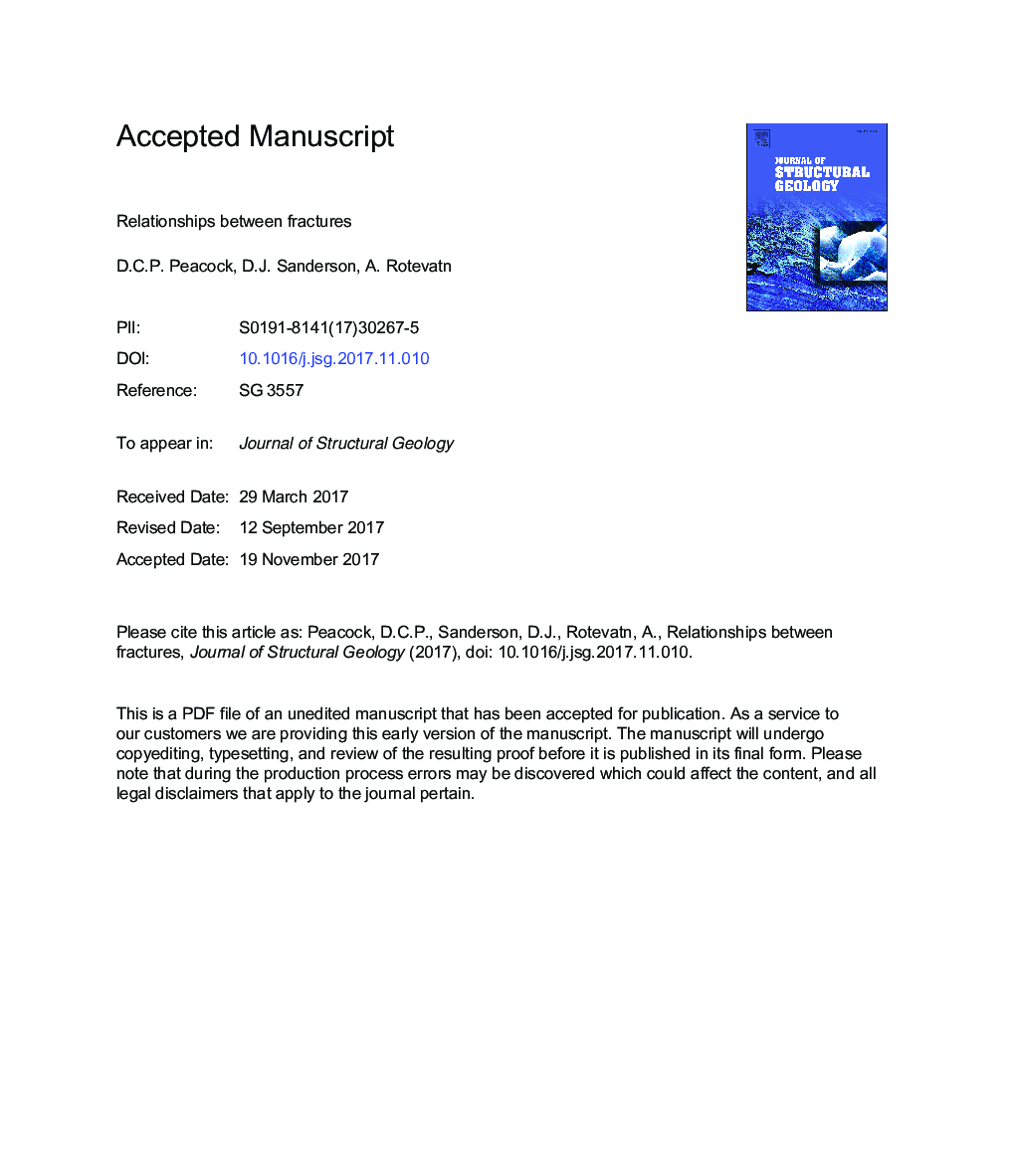| Article ID | Journal | Published Year | Pages | File Type |
|---|---|---|---|---|
| 8914530 | Journal of Structural Geology | 2018 | 46 Pages |
Abstract
Fracture interactions are characterised in terms of the following. 1) Fracture type: for example, whether they have opening (e.g., joints, veins, dykes), closing (stylolites, compaction bands), shearing (e.g., faults, deformation bands) or mixed-mode displacements. 2) Geometry (e.g., relative orientations) and topology (the arrangement of the fractures, including their connectivity). 3) Chronology: the relative ages of the fractures. 4) Kinematics: the displacement distributions of the interacting fractures. It is also suggested that interaction can be characterised in terms of mechanics, e.g., the effects of the interaction on the stress field. It is insufficient to describe only the components of a fracture network, with fuller understanding coming from determining the interactions between the different components of the network.
Related Topics
Physical Sciences and Engineering
Earth and Planetary Sciences
Geology
Authors
D.C.P. Peacock, D.J. Sanderson, A. Rotevatn,
